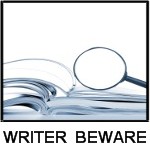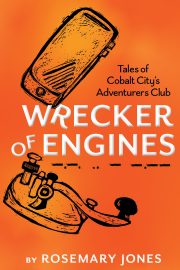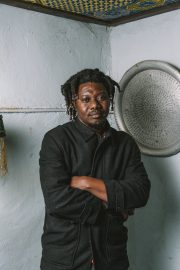Blog Post/Article Roundup
 Posted by Victoria Strauss for Writer Beware
Posted by Victoria Strauss for Writer Beware
Some blog posts and articles that piqued my interest over the past few weeks.
Inspired by a silly piece by writer Jeff Rivera on GalleyCat, in which he, the owner of a self-publishing service, and an anonymous author question the usefulness of literary agents, agent Miriam Goderich of Dystel & Goderich provides an eloquent rebuttal: Who Needs an Agent? You Do.
From agent Holly Root: why not to sweat the small stuff. “There’s a ton of ink spilled online over do’s and don’ts for writers, and while I am a firm believer that knowledge is power and all, too much information can be paralyzing, and some of us on this side of the desk are guilty of making it seem much harder than it already is. If you really read and adhered to every.single.thing. every agent said online you would never finish a book or a query letter and if you did it would probably be a bland groupthinked mess, which actually will get you rejections.”
Agent Jennifer Jackson provides some helpful advice on query letters, including this explanation of what your query letter may say about you and your book (query-hating writers, pay heed): “Now, I’m not going to say that it’s not hard to sum up the book that the writer has spent months, or even years, producing in a way that will make someone want to read it. I think it’s a challenge. And you should definitely give it your best shot. Because, yes, the query is an important part of the initial submission. It sets the stage for reading the synopsis and sample pages. It can reveal things such as the writer’s background, whether their approach is professional, how they see their novel, and other intangible gut feeling responses.”
A pair of really informative posts from agent Rachelle Gardner: How Book Royalties Work and Is Your Book Worth It? (covers what commercial publishers spend on book production).
For writers who, like me, are not enamored of the relentless pressure to self-promote, this New Yorker parody of a marketing plan may make you laugh–or cry.
From writer Caroline Hagood, a short essay on writer’s block that I totally relate to. (For me, actually, what Ms. Hagood describes isn’t true block–it’s more the getting stuckness that I think all writers experience from time to time [and I experience a lot]. True block–the absolute dearth not just of ideas, but of words–is something else again.)
Speaking of being stuck: from Colson Whitehead and the New York Times, some not-exactly-serious ideas for what to write next.


